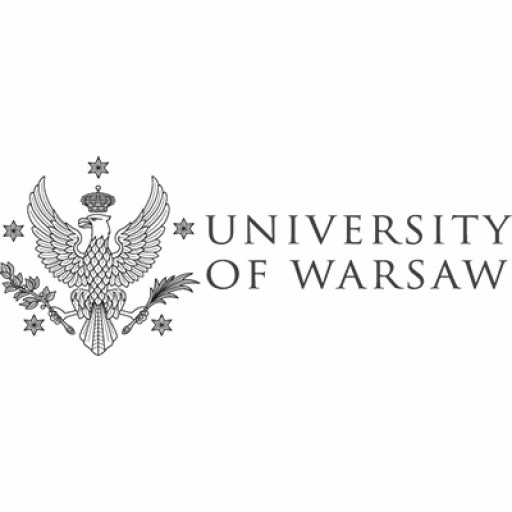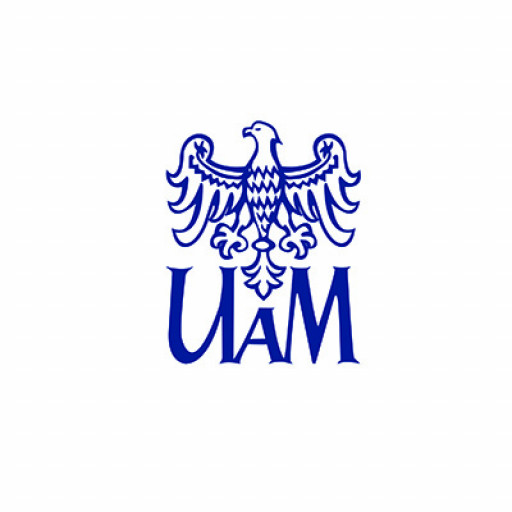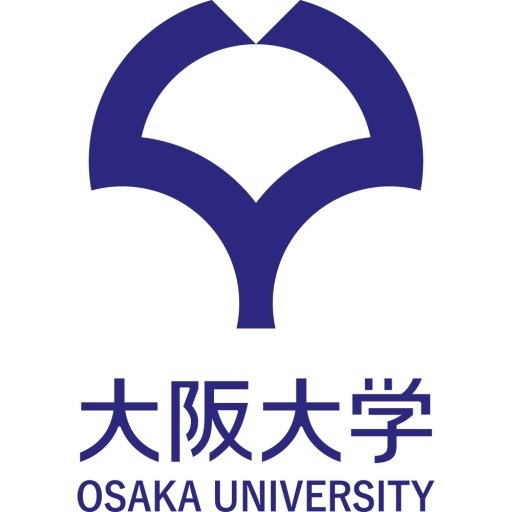The Faculty of Electrical Engineering and Computing at Poznan University of Technology offers a comprehensive Bachelor's degree program in Technical Physics designed to prepare students for a diverse range of scientific and engineering careers. This interdisciplinary program combines principles of physics with practical applications in technology, enabling graduates to understand and develop innovative solutions in various sectors such as electronics, nanotechnology, energy, and industrial automation. The curriculum covers core areas including classical and modern physics, materials science, measurement and diagnostics, optics, thermodynamics, and electromagnetism, complemented by courses in programming, computer modeling, and data analysis. Students gain hands-on experience through laboratory exercises, project work, and internships, fostering skills in experimental techniques, problem-solving, and technical communication. The program emphasizes modern technological advancements and encourages innovative thinking, preparing graduates for roles in research institutes, technological companies, and manufacturing industries. Additionally, students have opportunities to participate in research projects, collaborate with industry partners, and attend international conferences, enriching their educational experience. Graduates of Technical Physics are equipped with a strong foundation in scientific principles and practical skills necessary to contribute to the development of new technologies and improve existing systems. The program aims to develop analytical thinking, creativity, and adaptability, ensuring students are well-prepared to meet the challenges of today’s rapidly evolving technological landscape. Upon completion, students receive a Bachelor's degree in Technical Physics recognized internationally, opening pathways to postgraduate studies or employment in various sectors related to physics, electronics, and engineering. The faculty's modern laboratories, experienced academic staff, and active research environment provide an ideal setting for aspiring physicists to thrive and innovate.
The Bachelor’s program in Technical Physics at Poznan University of Technology offers students a comprehensive education in the fundamental principles of physics and their application to modern technological challenges. The program aims to prepare graduates for careers in research, development, and industry by providing a solid foundation in both theoretical and experimental physics, complemented by practical skills in engineering and technology.
Throughout the course of study, students explore a wide range of topics, including classical mechanics, electromagnetism, thermodynamics, quantum physics, and solid-state physics. Emphasis is placed on understanding the physical principles behind various technological devices and processes, enabling students to analyze and optimize systems in fields such as electronics, photonics, nanotechnology, and materials science. The curriculum also includes specialized courses in areas like laser physics, semiconductors, microelectronics, and instrumentation, ensuring that students gain expertise in cutting-edge technological areas.
The program integrates extensive laboratory work and project-based learning to develop hands-on skills essential for experimental physics and engineering tasks. Students have access to modern laboratories equipped with advanced instrumentation, allowing them to conduct experiments, data analysis, and technological testing under supervision. This practical approach aims to cultivate problem-solving skills, creativity, and the ability to work effectively in multidisciplinary teams.
In addition, the program promotes the development of soft skills necessary for professional success, including technical communication, teamwork, and project management. Students are encouraged to participate in internships, research projects, and collaborations with industry partners, providing valuable real-world experience and enhancing employability.
Graduates of the Technical Physics program are well-prepared to pursue careers in high-tech industries, research and development centers, or continue their education through master's and doctoral studies. They acquire the competencies needed to analyze and solve complex physical and technological problems, contribute to innovation, and adapt to the rapidly evolving landscape of modern technology.
The program is designed to meet national and international standards for engineering and technical education, ensuring that students receive a high-quality academic experience that combines theoretical knowledge with practical expertise. By choosing this program, students embark on a challenging yet rewarding educational journey that opens pathways to numerous careers in science, technology, and industry, ultimately contributing to technological advancement and economic development.
In order to apply for Ph.D. studies the candidate should send (study@put.poznan.pl) us copies of the following documents:
1. Master diploma – a photocopy – diploma of completing 2nd cycle studies.
NOTE! it should be legalized and translated by a sworn translator into English or Polish.
2. Transcript of Records for M.Sc. studies (supplement) containing courses passed by a candidate during the studies, in particular including lectures, auditorium classes, laboratory classes, seminar classes and project classes together with obtained grades.
3. Motivation letter, stating why the candidate has chosen the faculty concerned at PUT, and describing the candidate’s particular area of scientific interest within the chosen field.
4. English knowledge at the level B2. If the previous education was conducted in English the document will be recognized as proof of language proficiency.
It is also possible:
• to present an official certification e.g.: TOEFL, IELTS exam or,
• enroll in a one- semester language course at PUT.
5. Photocopy of a valid passport.
6. CV.
Poznan University of Technology holds the rights to award a Ph.D. degree in 16 academic fields within the following scientific areas: technology, chemistry, physics and economics, as well as to award a senior Ph.D. (habilitation) in 12 academic fields.
The documents provided by the candidate are then analyzed in search of an appropriate member of the academic staff (professor) who will take the role of scientific tutor, i.e. whose scientific interests are close to those of the candidate, who will co-operate with the future Ph.D. student and finally become the official supervisor of their Ph.D. thesis. Such tutor, interested in scientific cooperation, will contact the candidate, and finally decide about admitting (inviting) him/her to the recruitment process.
Type of financing: Tuition fee paid by students; possible government and university scholarships; grants; engineering and research project funding.
Tuition fees vary depending on the mode of study and are generally available on the university’s official website.
Students can apply for various scholarships based on academic achievement, social needs, or specific talent, which can significantly reduce the financial burden.
Additionally, there are international student scholarships available for foreign applicants, which may cover partial or full tuition fees.
The university occasionally offers financial aid programs to support students who demonstrate financial need or exceptional academic performance.
Students can also seek funding through research grants or participation in university-led projects, which sometimes provide stipends or other financial support.
Part-time work opportunities may be available in university facilities or nearby enterprises, helping students finance their studies.
European Union funding programs can sometimes support students in specialized fields like physics, especially if involved in international research collaborations.
Some students might qualify for student loans through national or private financial institutions, which can be repaid after graduation.
Private foundations and organizations sometimes offer additional support for physics students engaged in research or scientific activities.
The university provides detailed information and support for students seeking financial assistance during the admission process and throughout their studies.
In summary, financing studies at the Poznan University of Technology involves a combination of personal funds, scholarships, grants, and employment, with various options tailored to diverse student needs and circumstances.
The Technical Physics programme at Poznan University of Technology offers students a comprehensive education in the fundamental and applied aspects of physics, emphasizing the development of practical skills and theoretical knowledge necessary for careers in research, industry, and technology. The curriculum is designed to prepare graduates to analyze complex physical systems, develop innovative technological solutions, and contribute to scientific advancements across various fields such as materials science, electronics, energy, and medical physics. The programme combines rigorous coursework in classical and modern physics, mathematics, and engineering principles, providing a strong foundation for understanding the physical phenomena that underpin modern technological applications.
Students enrolled in this programme have the opportunity to engage in laboratory work, practical projects, and internships that foster hands-on experience and problem-solving abilities. The faculty at Poznan University of Technology collaborates with industry partners and research institutes to ensure the curriculum remains aligned with current scientific and technological trends. This approach equips students with the skills needed to adapt to rapidly evolving technological landscapes and prepares them for careers in both academia and industry, including roles in research & development, technical consultancy, and scientific instrumentation.
The programme also emphasizes the development of communication skills, teamwork, and interdisciplinary collaboration, which are essential in modern scientific and engineering environments. Graduates are expected to have a solid understanding of quantum mechanics, thermodynamics, electromagnetism, and materials physics, alongside proficiency in computational tools and simulation methods that are vital for analyzing physical systems. Additionally, students have opportunities for international exchanges and participation in scientific conferences, broadening their global perspective and professional network.
Poznan University of Technology’s Technical Physics programme is designed for students passionate about science and technology, aiming to foster innovation and technological progress. The graduates of this programme are well-prepared to contribute to solving societal challenges related to energy efficiency, sustainability, technological development, and health sciences. Overall, this programme provides a robust blend of theoretical knowledge and practical experience, making it a suitable choice for students aspiring to become physicists, engineers, or researchers in various cutting-edge technological fields.







